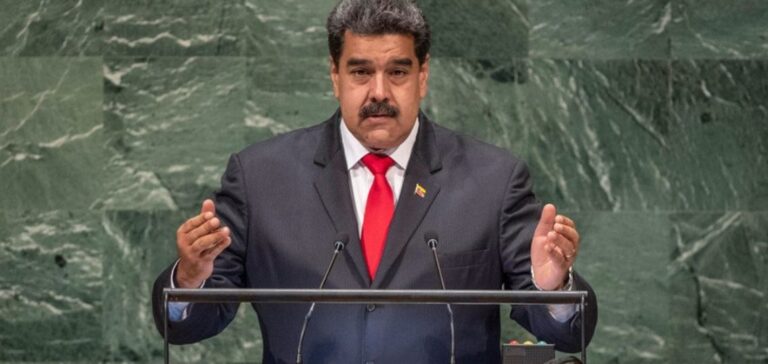Venezuelan President Nicolas Maduro has firmly warned Guyana and oil company ExxonMobil against oil exploration in the Essequibo region, a 160,000 km² area at the heart of a territorial dispute between the two countries. According to Maduro, any activity in this area is “illegal,” as the zone remains in dispute and has not yet been fully validated internationally. He added that the Venezuelan government would use all means at its disposal to stop these activities.
Venezuela reiterated its position that Guyana is exploiting resources in an area over which it claims sovereignty. In particular, Venezuelan authorities have observed, via satellite imagery, the presence of 28 drilling vessels and foreign tankers operating in the area. These operations, mainly led by ExxonMobil, have sparked strong opposition from Caracas.
Historical tensions over the Essequibo territory
The territorial dispute between Venezuela and Guyana dates back several centuries. At the centre of this conflict is the Essequibo region, a territory of great strategic and economic importance, particularly after ExxonMobil’s oil discoveries in the area. Venezuela claims sovereignty over this region, arguing that the border demarcation has never been definitively settled. Guyana, on the other hand, defends the legality of international agreements, notably a 1899 arbitration that validated the delimitation of its current border.
Guyana recently granted ExxonMobil new exploration licences in the Stabroek block, where significant oil reserves have been discovered. This development provoked an immediate response from Venezuela, which views these actions as a violation of territorial sovereignty principles. In response, the Guyanese government assured that all activities are taking place within the bounds of its exclusive economic zone, as legitimised by international law.
The role of the Venezuelan military and international responses
The escalation of tensions has also seen an increase in Venezuelan military presence in the region. Venezuela has deployed ships and aircraft to monitor activities in the contested area. However, Guyana has rejected any allegations of incursions into its waters, labelling these statements as “provocations.” The incident has drawn the attention of the United States, which has expressed concern over any attempts of aggression against Guyana, calling the extension of threats “unacceptable.”
Venezuela, for its part, continues to assert that it will use all necessary means to defend its sovereignty over Essequibo, while calling for a peaceful resolution to the conflict. The Guyanese government insists that its rights over the region are indisputable, supported by international legal rulings.
An uncertain future for the Essequibo region
The outcome of the dispute between Venezuela and Guyana remains uncertain, although tensions continue to rise as the two countries compete for control of the oil resources in the region. Both nations have accused each other of territorial rights violations, which has fueled a growing atmosphere of mistrust. International experts are calling for a swift diplomatic resolution to avoid an escalation that could destabilise the entire region.
The conflict over Essequibo, now marked by geopolitical and economic stakes, remains a sensitive issue that could have significant repercussions on the stability of South America.






















